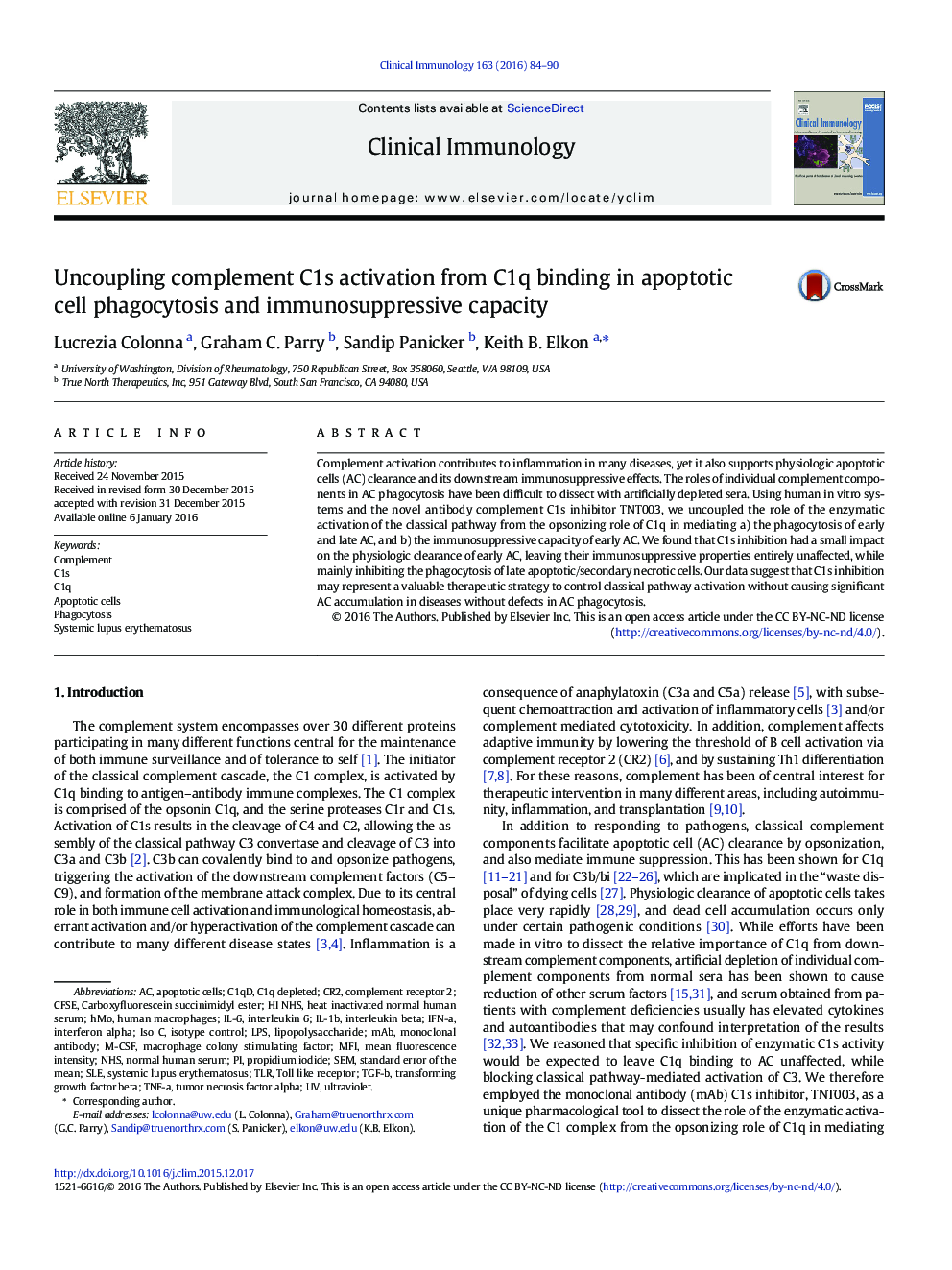| Article ID | Journal | Published Year | Pages | File Type |
|---|---|---|---|---|
| 6087270 | Clinical Immunology | 2016 | 7 Pages |
â¢Specific complement C1s inhibition does not alter C1q binding to dying cells.â¢C1s inhibition prevents C3b deposition and phagocytosis of secondary necrotic cells.â¢C1s inhibition has a smaller effect on early apoptotic cell (AC) phagocytosis.â¢C1s blockade leaves the immunosuppressive capacity of early AC entirely unaffected.
Complement activation contributes to inflammation in many diseases, yet it also supports physiologic apoptotic cells (AC) clearance and its downstream immunosuppressive effects. The roles of individual complement components in AC phagocytosis have been difficult to dissect with artificially depleted sera. Using human in vitro systems and the novel antibody complement C1s inhibitor TNT003, we uncoupled the role of the enzymatic activation of the classical pathway from the opsonizing role of C1q in mediating a) the phagocytosis of early and late AC, and b) the immunosuppressive capacity of early AC. We found that C1s inhibition had a small impact on the physiologic clearance of early AC, leaving their immunosuppressive properties entirely unaffected, while mainly inhibiting the phagocytosis of late apoptotic/secondary necrotic cells. Our data suggest that C1s inhibition may represent a valuable therapeutic strategy to control classical pathway activation without causing significant AC accumulation in diseases without defects in AC phagocytosis.
